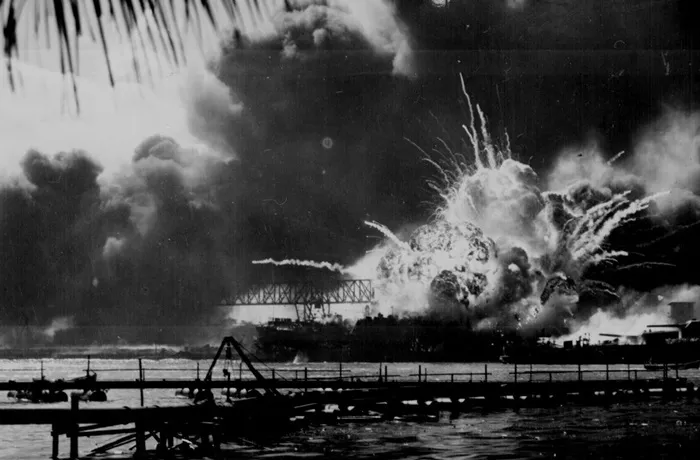December 7 has been a significant date in American history, marked by various pivotal events that have shaped the nation. This article explores these events in detail, focusing particularly on the most notable occurrences, such as the attack on Pearl Harbor, and other historical milestones.
What Happened on December 7 in American History?
The Attack on Pearl Harbor (1941)
The most infamous event associated with December 7 is the attack on Pearl Harbor, which occurred in 1941. This surprise military strike by the Imperial Japanese Navy against the United States naval base at Pearl Harbor, Hawaii, marked a crucial turning point in World War II. On the morning of December 7, 1941, Japanese forces launched a well-coordinated aerial assault on Pearl Harbor. The attack began at approximately 7:48 AM local time and lasted for about two hours. Over 350 Japanese aircraft participated in the assault, targeting battleships and airfields. The U.S. Pacific Fleet was caught off guard, as many ships were moored at the harbor and aircraft were lined up on runways.The damage was catastrophic: more than 2,400 Americans were killed, including military personnel and civilians. The USS Arizona was one of the most heavily damaged ships; it sank after a bomb exploded in its forward ammunition magazine, resulting in the loss of over 1,100 crew members. In total, eight battleships were damaged or sunk, along with numerous other vessels and aircraft.
Immediate Consequences
The attack on Pearl Harbor had profound implications for the United States. It galvanized public opinion against Japan and led to an immediate declaration of war. On December 8, President Franklin D. Roosevelt addressed Congress, famously declaring December 7 “a date which will live in infamy.” Congress swiftly voted to declare war on Japan, marking the official entry of the United States into World War II.
Long-term Impact
The attack not only transformed U.S. foreign policy but also led to significant changes within American society. The nation shifted from isolationism to active involvement in global conflicts. This event also spurred military recruitment and production efforts across the country, leading to a rapid mobilization of resources for war.
Delaware Ratifies the Constitution (1787)
Another significant event that occurred on December 7 was Delaware’s ratification of the United States Constitution in 1787. This milestone made Delaware the first state to ratify the Constitution.
Significance of Ratification
Historical Context: The ratification process followed intense debates among states regarding federal power versus state sovereignty.
Symbolic Importance: As the first state to ratify, Delaware earned the nickname “The First State,” setting a precedent for others to follow.
Formation of a New Government: Ratification was essential for establishing a strong federal government capable of unifying the newly independent states under a single framework.
The December Murders in Suriname (1982)
On December 7, 1982, a tragic event known as the December Murders took place in Suriname. This incident involved the military government of Suriname executing fifteen prominent political opponents.
Background and Context
Political Turmoil: Suriname was experiencing political instability under military rule at that time.
Targeted Individuals: The victims were known critics of the regime and included journalists and politicians who opposed military governance.
Aftermath: The murders sparked outrage both domestically and internationally and highlighted human rights abuses under authoritarian regimes.
Hamid Karzai Takes Office (2004)
On December 7, 2004, Hamid Karzai was inaugurated as President of Afghanistan following the country’s first direct democratic elections.
Significance of His Presidency
Democratic Transition: Karzai’s election represented a significant step towards establishing democracy in Afghanistan after years of conflict.
Challenges Ahead: His presidency faced numerous challenges including rebuilding war-torn infrastructure, addressing security concerns from Taliban insurgents, and fostering economic development.
International Support: Karzai’s government received substantial support from international allies who aimed to stabilize Afghanistan post-Taliban rule.
Conclusion
December 7 is etched into American history not only for its association with Pearl Harbor but also for its role in shaping constitutional governance and democratic transitions in other nations. Each event reflects broader themes in American history—conflict and resolution, governance and authority, as well as human rights struggles. Understanding these events provides insight into how they have influenced contemporary America and its role on the global stage.This exploration highlights how historical events on this day have contributed significantly to American identity and policy directions throughout history. Each event serves as a reminder of both challenges faced and progress made over time.

